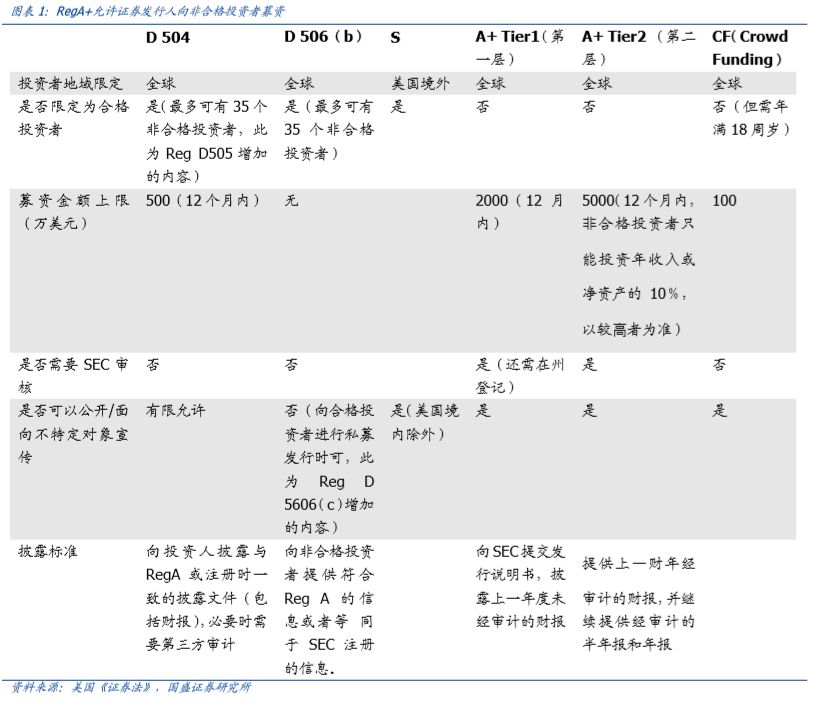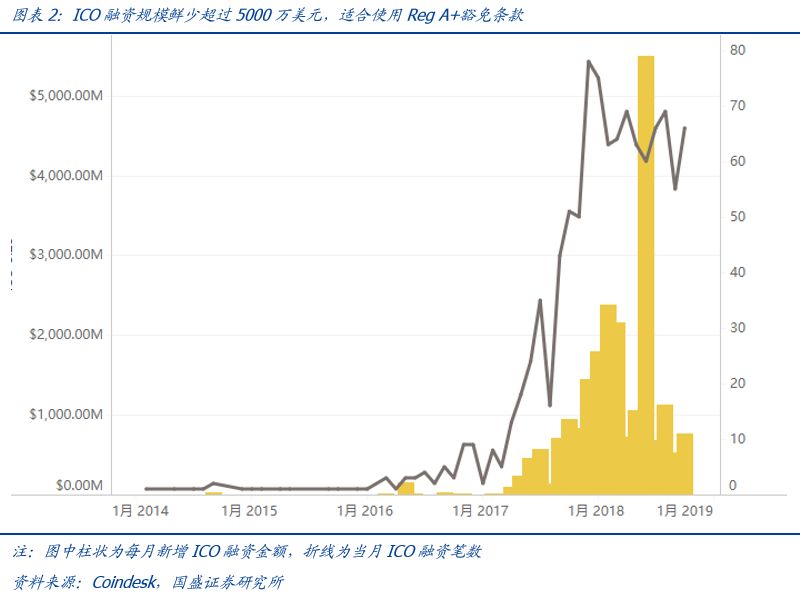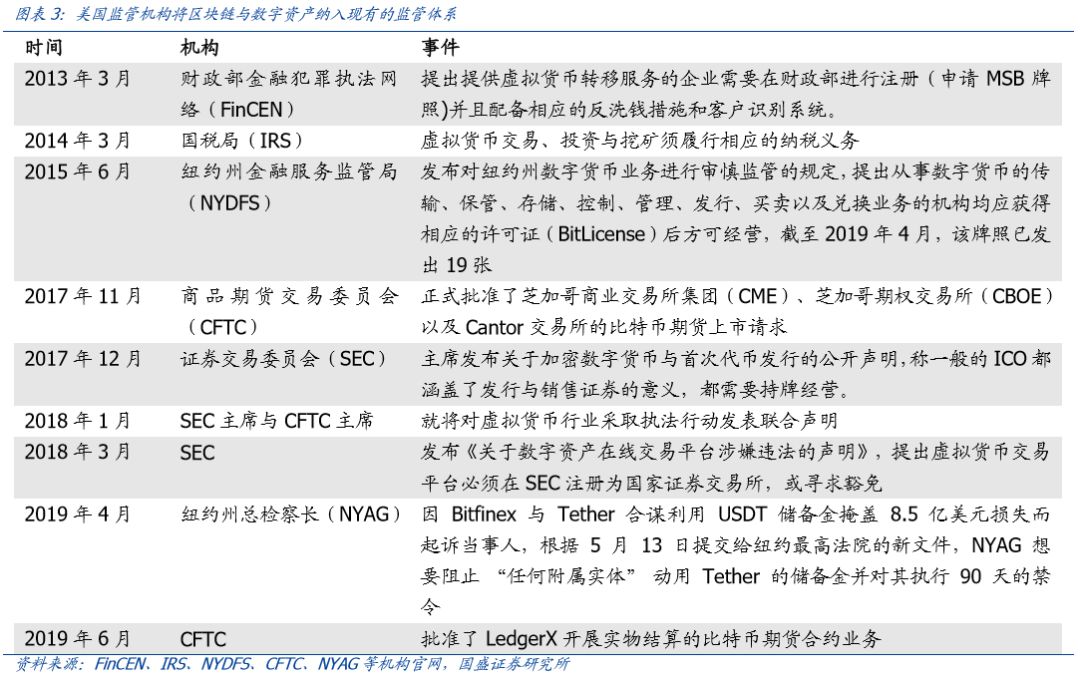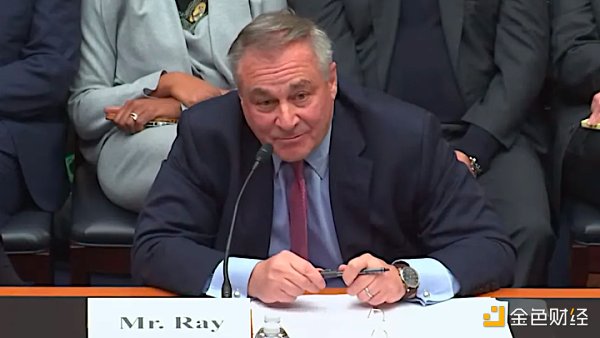The US Securities and Exchange Commission approved the listing of two generations of coins, Reg A+ or the conventional way of listing into cryptocurrency
Summary
Blockstack is a blockchain-based decentralized computing power network that wants to create an application ecosystem that enables users to truly master their identity and data. There are currently more than 165 apps on the platform. Prior to the SEC approval, the company raised $50 million from investors such as Union Square Ventures, Blockchain Capital, and Compound.
Props is based on the Ethereum blockchain, and its tokens are used to integrate streaming media platforms (such as YouNow and Xplit) to motivate users and content producers. Prior to the SEC approval, the company sold blockchain tokens worth approximately $22 million to investors such as Union Square Ventures, Comcast, and Venrock.
This is the first time the SEC has approved the listing of blockchain tokens (referring to cryptocurrencies based on blockchain issues), marking a new phase in the regulation of blockchain projects in the United States.
Reg A+ or blockchain tokens are standard on the market. The SEC said that most of the blockchain tokens except Bitcoin and Ethereum are securities. According to the Securities Act of 1933 issued by the United States, securities are required to be registered with the SEC unless exempted under the regulations of D, S, A, etc. ("Reg D", "Reg S", "Reg A"). For a long period of time, blockchain tokens did not have a precedent for successful registration or exemption at the SEC.
- Comment: Is mining a good business?
- Babbitt column | Bitcoin has no financing, what financing do you use?
- Gu Yanxi: Libra, Pandora's Box of Central Banks
The Reg A+ based on BlockStack and Props Network allows issuers to publicly raise funds to non-qualified investors (qualified investors refer to investors who meet at least $1 million in net assets, or at least 20 in the last two years) Ten thousand dollars of personal annual income or $300,000 annual household income). In other words, Reg A+ allows the issuer to raise funds from ordinary investors with weaker financial strength, which is beneficial to increase the liquidity of the issuer's issued securities, or to become a blockchain token issue standard, which can promote more The project is legally ICO (Initial Coin Offering).
In addition, through the history of ICO financing, the average financing amount of ICO projects in 2014, 2015, 2016, 2017, and 2018 was 4 million US dollars, 1 million US dollars, 6 million US dollars, 16 million US dollars, and 26 million US dollars. There are also few issuers financing more than $50 million (Reg A+ capped fund limit), which makes it suitable for public release using the Reg A+ exemption clause.
As of October 31, 2018, the blockchain project received a total of approximately US$22.5 billion in financing through ICO. RegA+ will be the key bridge for the market to be accepted by traditional capital markets.
The US regulatory system for blockchain and digital assets is becoming more sophisticated. In general, the attitude of the US regulatory system to the blockchain and its digital assets is to be incorporated into the existing regulatory system as much as possible, and the relevant businesses are subject to licensing supervision. The SEC's approval of the two-block chain token project listing application is an important step in the US's blockchain and digital asset regulation. It goes beyond the previous "qualitative" and fines for blockchain tokens. The suspension of issuance and other enforcement actions against issuers have further clarified the US regulatory system for blockchain and digital assets. It is the actual implementation of the blockchain project in the SEC-regulated capital market financing, and has a strong demonstration effect, which has important reference significance for future blockchain projects.
Risk warning: Blockchain technology development is not up to expectations, and regulatory policies are becoming stricter.

US Securities and Exchange Commission applies for listing through two blockchain tokens
Born in Princeton in 2013, Blockstack is a decentralized computing power network based on blockchain, which hopes to create an application ecosystem that enables users to truly master their identity and data. There are currently more than 165 apps on the platform. The project's blockchain tokens will be used by users as “fuels” for the registration of digital assets such as domain names and for the registration and execution of smart contracts. Prior to the SEC approval, the company raised $50 million from investors such as Union Square Ventures, Blockchain Capital, and Compound.
Props is based on the Ethereum blockchain, and its tokens are used to integrate streaming media platforms (such as YouNow and Xplit) to motivate users and content producers. Props token holders have the opportunity to gain VIP status on the aforementioned platforms and have the right to watch exclusive content. Prior to the SEC approval, the company sold blockchain tokens worth approximately $22 million to investors such as Union Square Ventures, Comcast, and Venrock.
Among them, according to Blockstack's official website, the token sale sells 62 million tokens for $0.30, and sells 78.33 million tokens to users who hold token-for-money coupons for $0.12. Blockstack plans to pass this generation. Coin sales raised $28 million. Blockstack officially stated that residents of Arizona, Nebraska, North Dakota and Texas are not allowed to participate, and residents of Japan and Canada are not allowed to participate. According to Blockset's founders Muneeb Ali and Ryan Shea, they spent $2 million to get SEC support, which is about 7.1% of the fundraising ($28 million).
This is the first time the SEC has approved the listing of blockchain tokens (referring to cryptocurrencies based on blockchain issues), marking a new phase in the regulation of blockchain projects in the United States.
Reg A+ or a conventional way of listing cryptocurrency
According to the Securities Act of 1933, the issue of securities is required to be registered with the SEC unless exempted under the regulations of D, S, A, etc. ("Reg D", "Reg S", "Reg A"). Blockstack raised $47 million through Reg D before being approved to use Reg A+. It also used Reg S to raise funds. This year it plans to continue to use Reg S to sell $0.40 at $0.25/ton. Token.
Reg A+ is a supplement to Reg A under the Trade and Industry Startup Promotion Act (the “JOBS Act”) on March 25, 2015. It divides Reg A into a 12-month fundraising cap of $20 million and 5000 respectively. Two levels of financing for ten thousand dollars. Reg A+ allows issuers to publicly raise funds from non-qualified investors. Qualified investors here refer to investors who have at least $1 million in net assets, or at least $200,000 in personal income or $300,000 in family income in the last two years.
In other words, Reg A+ allows the issuer to raise funds from ordinary investors with weaker financial strength, which is beneficial to increase the liquidity of the issuer's issued securities, or to become a blockchain token issue standard. Although this financing is not the initial public offering of the Blockstack token (ICO), it clearly has a significant reference to the legalization of ICO. As of October 31, 2018, the blockchain project received a total of approximately US$22.5 billion in financing through ICO. RegA+ will be the key bridge for the market to be accepted by traditional capital markets.

In terms of the amount, Reg A+ is an exemption clause with a higher amount of funds available, which can raise the issuer by 50 million US dollars at the earliest. Throughout the history of ICO financing, the average financing amount of ICO projects in 2014, 2015, 2016, 2017, and 2018 was 4 million US dollars, 1 million US dollars, 6 million US dollars, 16 million US dollars, and 26 million US dollars. Few issuers have raised more than $50 million in financing, making it suitable for public release using the Reg A+ exemption clause.

The US regulatory system for blockchain and digital assets is improving
The SEC's approval of the two-block chain token project listing application is an important step in the US's blockchain and digital asset regulation. It goes beyond the previous "qualitative" and fines for blockchain tokens. The suspension of issuance and other enforcement actions against issuers have further clarified the US regulatory system for blockchains and digital assets, and have actually landed blockchain projects in the SEC-regulated capital market financing. The blockchain project has important reference significance.

We will continue to update Blocking; if you have any questions or suggestions, please contact us!
Was this article helpful?
93 out of 132 found this helpful
Related articles
- "Large Case" tells you the truth about cryptocurrency hedge funds
- Is Reg A+ the gospel of the encryption company?
- Viewpoints | Facebook is a big winner regardless of Libra’s fate
- Research on the Incentive Attack of the Blockchain of Work Volume Proof (PoW)
- Dash CEO: The Chainlock protocol can reduce network attacks by 51%, Dash security or higher than Bitcoin
- Under the attack of Facebook and Google advertising giants, how does Vidy use the blockchain to seize a piece of highland? 丨 chain node AMA
- A "three-nation kill" incident triggered by a quarterly destruction of BNB





